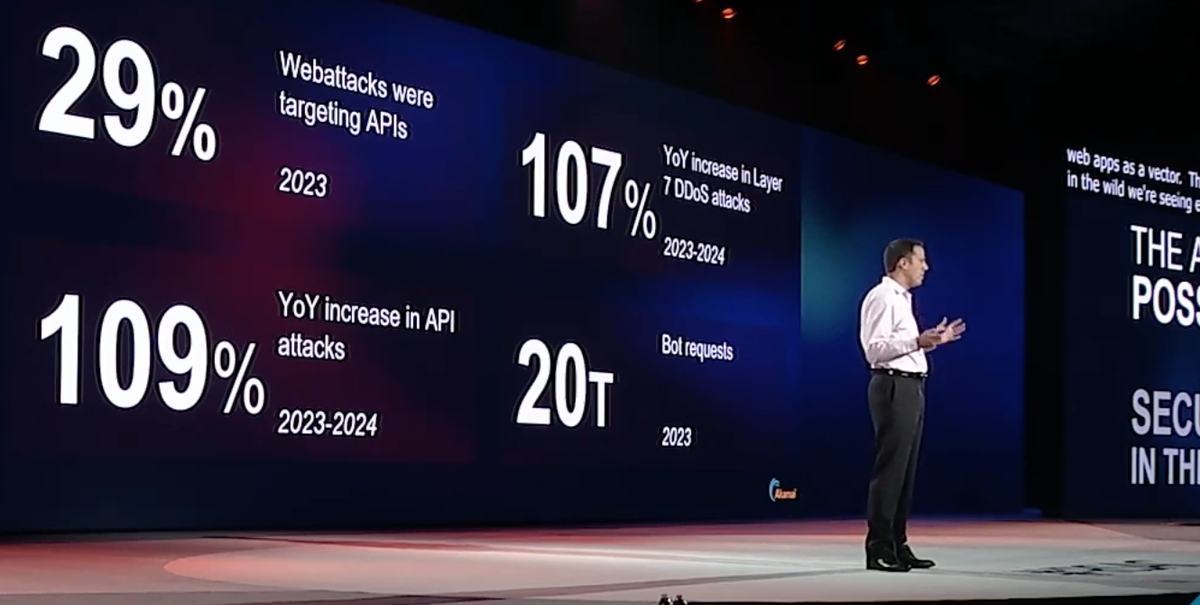API Attacks Surge as Akamai CSO Warns of Open Source Vulnerabilities at RSA Conference: At RSA Conference 2024, Boaz Gelbord, Chief Security Officer at Akamai, issued a serious warning: attacks on APIs and open source components are escalating rapidly.
Speaking in a powerful keynote, Gelbord explained that cybercriminals are increasingly using trusted internal tools to carry out stealthy attacks. This approach, known as “living off the land,” poses major security risks to modern application ecosystems.
API Attacks Spike by 109% Year-on-Year
API Attacks Surge, According to Akamai’s threat intelligence report, API-based attacks surged by 109% over the past year. Gelbord noted that web application attacks overall rose by 48%, while 29% directly targeted APIs.
“Organizations typically know their public-facing websites,” he said.
“But they often lack visibility into their full API inventory. That makes securing them much harder.”
APIs now serve as essential digital touchpoints across industries. However, their widespread use—and lack of proper documentation—makes them prime targets for hackers.
Backdoored Open Source Software Adds New Threat
Gelbord also pointed to recent supply chain threats, including the notorious XZ Utils vulnerability. In this case, attackers inserted malicious code into a popular open source compression tool, potentially allowing remote code execution.
“This case highlights how dangerous compromised open source tools can be,” Gelbord said.
Fortunately, a vigilant Microsoft engineer noticed performance anomalies before the exploit reached widespread distribution. But Gelbord cautioned that more hidden threats could still be lurking within widely used software libraries.
The Call for a Risk Based Security Strategy
As API Attacks Surge, Gelbord urged organizations to rethink their security models. He emphasized adopting risk-based approaches that align closely with the components making up each application—code, APIs, third-party integrations, and infrastructure.
He also stressed the importance of:
-
Vendor interoperability
-
Integrated compliance and security programs
-
Clear threat modeling tied to real infrastructure risks

AI Will Reshape Cybersecurity Operations
Looking forward, Gelbord believes artificial intelligence will redefine the security landscape, especially in areas like identity management, user authorization, operations, and monitoring.
“AI is going to reshape how we handle identity and authorization,” he explained.
“It will also change how we conduct our security operations and monitoring in real time.”
Key Takeaways for CISOs and Security Teams
-
Track and inventory all APIs, not just customer-facing ones
-
Audit open source components regularly to detect hidden risks
-
Adopt AI tools for smarter, faster threat detection
-
Prioritize security-by-design in development and deployment pipelines
-
Build cross-team strategies that combine compliance, DevSecOps, and risk management



